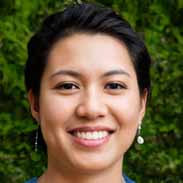Chapter 1 Gov’t Test – Essay – Flashcards
Unlock all answers in this set
Unlock answersquestion
What characteristics define a state?
answer
Body of people living in a defined territory, with a government and have the power to make and enforce law without higher authority.
question
What are the four most widely held theories that attempt to explain the origins of the state? (Hint: F.E.D.S.)
answer
1. Force Theory: people took control of an area and force the inhabitants to their rule. 2. Evolutionary Theory: state began through family and started with the head or leader of a clan or cult. 3. Divine Right Theory: the state was created by god and the rulers were the people born into royalty. 4. Social Contract Theory: the state arose out of a voluntary act of free people.
question
Which theory on the origin of the state was most influential in the founding of the United States?
answer
The Divine Right Theory.
question
For what reasons do people form a government?
answer
To form a more perfect union, establish justice, insure domestic tranquility, provide for the common defense, promote the general welfare, and to secure the blessings of liberty.
question
On what three general bases can governments be classified?
answer
1. The geographic distribution of governmental power within the state. 2. The relationship between the legislative and executive branches of the government. 3. The number of people who can take part in the process of governing.
question
What are the three forms of government that can result depending on how governmental power is distributed?
answer
1. Unitary Government - often described as a centralized government. A government in which all powers held by the government belong to a single, central agency. 2. Federal Government - the powers of government are divided between a central government and several local governments. 3. Confederate Government - an alliance of independent states.
question
What are the two forms of government that can result depending on the relationship between the legislative and executive branches?
answer
1. Presidential Government - features a separation of powers between the executive and legislative branches of the government. 2. Parliamentary Government - the executive is made up of the prime minister of premier and that official's cabinet.
question
What are the forms of government that can result depending on the number of people can participate in the governmental process?
answer
1. Dictatorship - those who rule cannot be held responsible to the will of the people. 2. Democracy - A supreme political authority that rests with the people
question
What are the five basic concepts of democracy?
answer
1. A recognition of the fundamental worth and dignity of every person 2. A respect for the equality of all persons 3. A faith in majority rule and the insistence on minority rights 4. An acceptance of the necessity of compromise 5. An insistence upon the widest possible degree of individual freedom
question
For what reasons is compromise such an essential part of democracy?
answer
Democracy puts the individuals first but also insists that each individual is equal to all others. Also, few public questions have only two sides.
question
What is the relationship between the rights of the individual and the rights of the overall society?
answer
Each individual is free to do as he/she pleases. Democratic government must work constantly to achieve balance between the two. The highest value is of the free exchange of ideas.
question
In what sense must a democratic society provide for the rights of the minority?
answer
It must treat them as the equal to the majority and have the same rights.
question
What obligation does "a democratic society provide for the rights of the minority" place upon the majority?
answer
The majority must not assume more than the minority.



